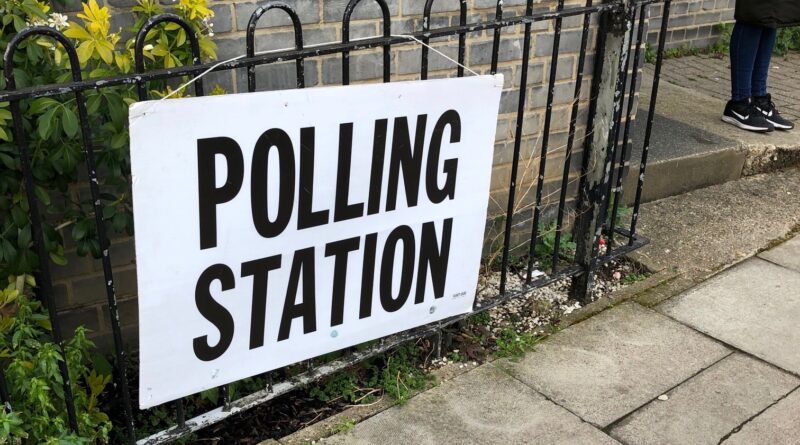Finnish scientist vows to take UK government to court over voting rights
A Finnish scientist who has lived in the UK for 25 years wants to bring the UK government to court over the lack of voting rights in general elections.
EU citizens could vote in the English local councils election and for the Welsh and Scottish parliaments last Thursday. But, unlike some other non-British nationals, they cannot vote in the UK general elections.
This is a “discriminatory anomaly” according to Dr Virve Enne, a microbiologist at a London university, who has launched a crowdfunding campaign to start a legal action.
Her intention is to lodge a claim in the High Court and seek a declaration of incompatibility of the current law with the Human Rights Act 1998, which gives effect to the European Convention on Human Rights.
Dr Enne was born in Finland, where she lived until she was 12. She then moved with her family to Portugal, where she attended English schools. “Most of my teachers were from the UK, so it was natural for me to move to London to study microbiology, in 1995,” she told Europe Street.
She now runs clinical trials aiming to improve the treatment of hospitalised patients with pneumonia, including those with Covid-19.
After spending most of her adult life in Britain, Dr Enne says she considers England home, she feels she contributes to society and wants to make her voice heard.
“The current legislation means that I, and thousands of people like me who have made their lives here in the UK, have absolutely no say in the direction of the country, and our children’s futures,” she said.
“Were it only UK citizens who had the vote, perhaps that would not be such an issue. I would simply accept that… However, that’s not the case. It is not only UK citizens who can vote in general elections. Now that Britain has left the EU, those of us who have made the UK our home and have settled status should not be excluded,” she added.
Dr Enne says over the years she has not applied to become a British citizen – which would grant her full voting rights – because all EU countries, including the UK, shared EU citizenship. This gave her security even without the right to vote in general elections, but Brexit changed that, she says.
A mum of one, she also thinks the cost of UK citizenship, which amounts so some 1,700 GBP between the fee and all related costs, is too high to bear, especially when compared to the few hundreds of euros required in most European countries.
Who can vote in UK general elections
EU nationals were granted the right to vote and stand as candidates in UK local elections as part of EU citizenship. This right was not included in the negotiations on the UK withdrawal from the EU. However, the situation is not expected to change in the short term for EU citizens in the UK and the British government is negotiating bilateral deals with EU countries to ensure the same for Britons who live in the EU.
Meanwhile, Scotland and Wales have passed laws to allow non-British nationals, including EU citizens, to vote in the devolved parliamentary elections if they have “indefinite leave to remain”, a permanent resident status that can be acquired after living for 5 consecutive years in the country.
The citizens of 3 EU countries, Malta, Cyprus and Ireland, can also vote in UK general elections. Ireland and the UK have separate arrangements, while Maltese and Cypriots are entitled to vote because they are Commonwealth citizens.
Commonwealth citizens who live in the UK and have or do not require “leave to remain” can vote in all elections.
“The case seeks to establish that the Representation of the People Act 1983 unlawfully discriminates in that Commonwealth citizens lawfully resident in the UK have the right to vote in UK parliamentary elections, but that EU citizens with settled status in the UK do not,” says Dan Rosenberg, a public law expert at Simpson Millar LLP, the solicitors that will bring the legal action on behalf of Dr Enne.
The barristers they have instructed are David Wolfe QC from Matrix Chambers and Adrian Berry from Garden Court Chambers.
If the case were successful, it would be for the government and parliament to decide how to remedy the situation and make the law compatible with the European Convention on Human Rights. The UK government could for instance emulate the position of Scotland and Wales, where lawfully resident foreigners can vote in all elections.
The intention of the case is to ‘level-up’ and ensure that people in a similar position are treated in the same way, Mr Rosenberg argued. “In response to an initial letter before action on this matter, the government made it very clear, quite rightly, that voting rights for Commonwealth citizens are here to stay, and ‘levelling-down’ is not something that they would consider,” he explained.
Some immigration experts, however, believe it would be controversial to link voting rights to an immigration status, which is acquired through different and potentially discriminatory routes.
Crowdfunding campaign
Dr Enne has launched a CrowdJustice page to raise the necessary funds for the legal action. The initial target is £50,000 to cover all the costs if the case is unsuccessful as the legal team will operate at a discounted rate.
“Europeans have ties with the UK because of EU citizenship and those with settled status are likely to stay in the country long-term,” Dr Enne argues.
“I closely collaborate with a UK based Singaporean scientist in my research. She has the vote. I do not. It makes no sense. Nor does it make any sense that EU citizens from Malta and Cyprus have the vote, as their countries are also Commonwealth countries, but I do not,” she continues.
More than 4 million EU citizens living in the UK currently have settled or pre-settled status. While some have chosen to naturalise as British, for many this is not an option as it would mean losing citizenship in the country of origin, and EU citizenship too.
There is growing demand for voting rights at the EU level. An international campaign is currently collecting signatures to ask the European Commission to change rules and grant the right to vote in general elections to all EU citizens living in other EU countries.
Claudia Delpero © all rights reserved
Europe Street News is an online magazine covering citizens’ rights in the EU and the UK. We are fully independent and aim to provide factual, accurate and reliable information. As citizens’ rights are at the core of democracy, we keep our website and newsletter free. A lot of research is behind every article, so if you found this useful, please consider making a contribution to support our coverage.




